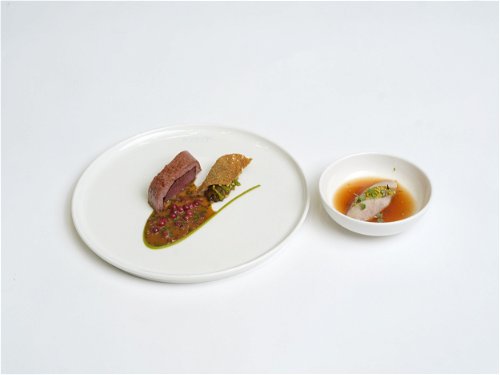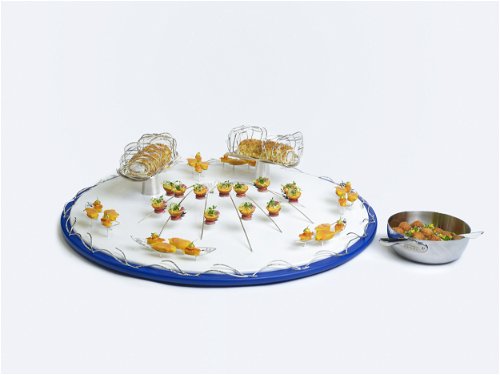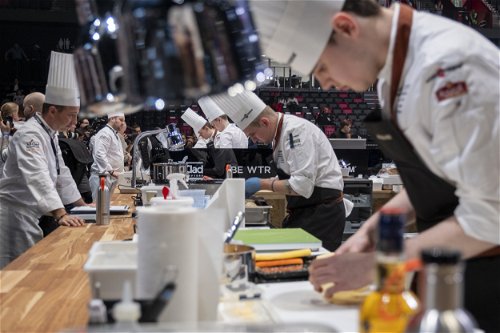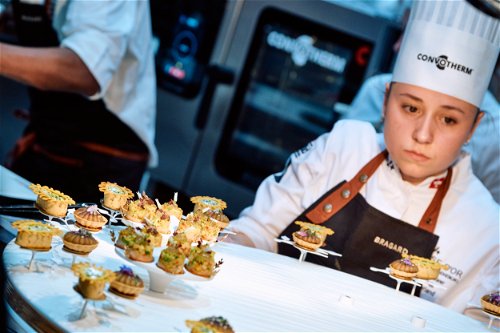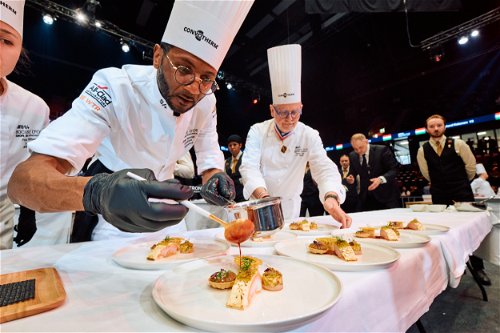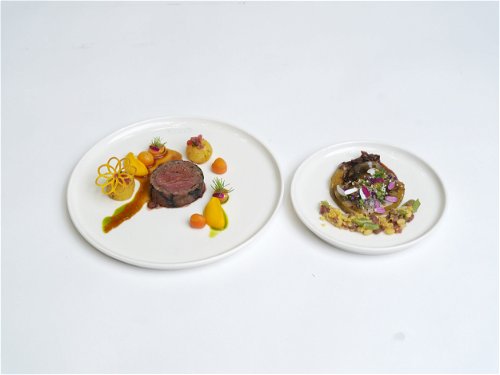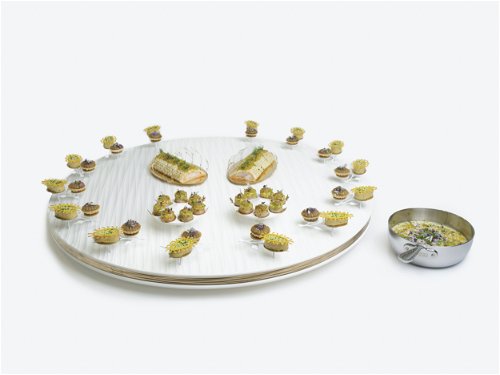Denmark wins the Bocuse d'Or Europe 2024
20 teams competed for a spot in the final of the world's premier cooking competition in Norway's culinary capital. As often happens, the Scandinavian countries emerged victorious, with Switzerland and Germany not making the cut. Germany, at least, understands why.
It is the most important cooking competition in the world. 20 teams competed on March 19 and 20 in Trondheim, Norway, for the same goal: a place in the grand final of the Bocuse d'Or.
In the end, the Scandinavians triumphed once again. Norway took home the bronze medal through Håvard Werkland, while Gustav Leonhardt from Sweden claimed the silver medal. For the second time in a row, Denmark, this time with Sebastian Holberg Svendsgaard, won over the jury and secured first place with its interpretation of Norwegian cuisine.
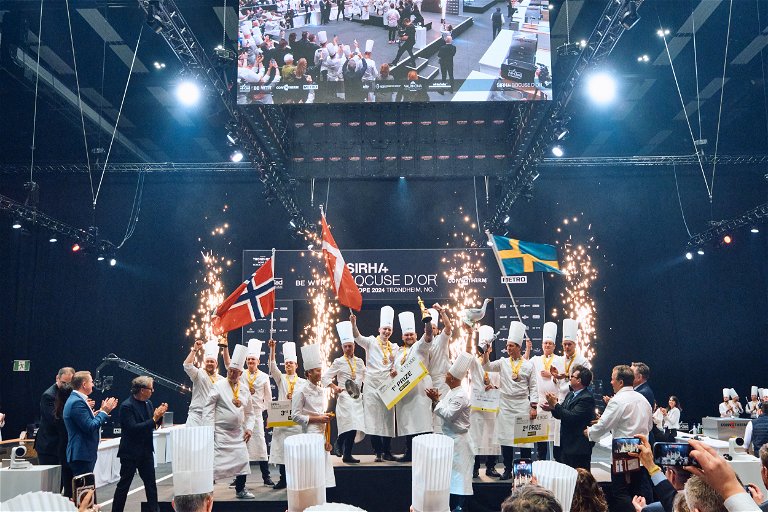
In addition to them, seven other European countries qualified for the international final of the Bocuse d'Or 2025: the United Kingdom, France, Hungary, Italy, Iceland, Slovakia, and Finland.
Two culinary tests
The Bocuse d'Or, often referred to as the "Olympic Games of gastronomy", was created by the French cooking legend Paul Bocuse and has been gathering the elite of the international culinary scene in Lyon every two years since 1987. The grand finale of the Bocuse d'Or will take place there on January 26 and 27, 2025.
In the European preliminary round, each team had five and a half hours to complete two tasks of the competition. The start times were staggered at ten-minute intervals from 9:00 a.m., with ten teams competing on Tuesday and another ten on Wednesday. The first task required candidates to create a dish featuring reindeer meat from the Røros region. The second challenge, the "plate", also celebrated the region's gastronomic heritage, focusing on skrei (a typical northern European cod), scallops from Frøya, and stockfish, accompanied by three side dishes, two of which had to be plant-based. Additionally, the recipes were required to include an ingredient distinctly identifiable with each participating country's cuisine. Lastly, all recipes needed to incorporate Aquavit, a traditional Norwegian spirit, completing the homage to Norway's culinary heritage.
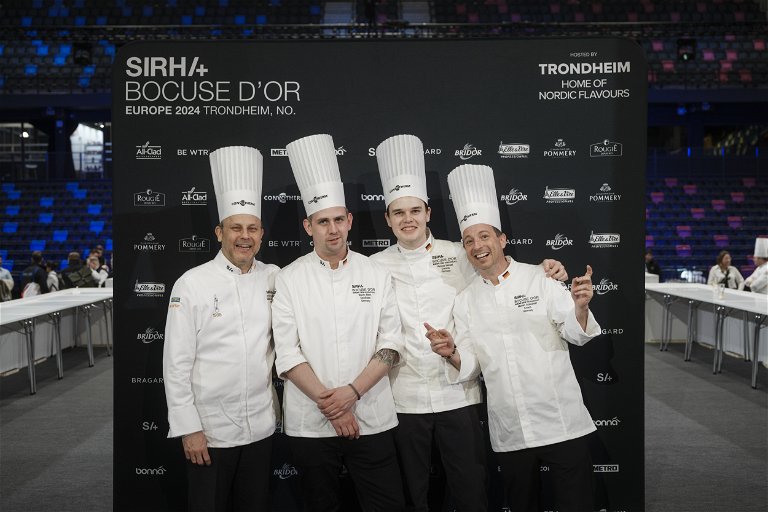
From Aqua to Trondheim
Germany entered the prestigious Bocuse d'Or competition with strong prospects. Marvin Böhm, a chef from Wolfsburg's renowned restaurant Aqua, represented Germany for the third time. Alongside him, Commis Hannes Hensel, also from Aqua, and their coach Marian Schneider dedicated months to perfecting their entries. Their innovative dishes included a Bavarian-style reindeer liver pâté and a seafood creation featuring cod and scallops, enhanced with tarragon and topped with almond and onion crumbs.
The three chefs have been living in what they describe as a "Bubble" for quite some time, a concept they elaborated on the morning of the second day. The reasons behind their intense dedication might be elusive to outsiders until they witness the teams in action, pouring all their energy into the competition's two tasks for hours on end.
More than 20 years ahead
Ultimately, Marvin Böhm's failure to secure a top position wasn't due to a lack of culinary talent, which his coach describes as exceptional. The actual - well-known - problem: the lack of understanding of culinary art and gastronomy in Germany, coupled with a lack of promotion. This was apparent not just from the few spectators in front of the German team's kitchen at the Trondheim Spektrum but also from the team's overall performance, resulting in a third-last finish.
Coach Schneider, a trained chef, entrepreneur, and the culinary director at the Lago Hotel in Ulm, highlighted a critical difference: "Scandinavian chefs can focus solely on cooking for six months, while the German team managed all organizational aspects, from logistics to seeking sponsors, on their own. The German contingent was significantly smaller than those of Scandinavian teams." Schneider noted that Scandinavia is more than 20 years ahead because they have recognized the importance of promoting culinary arts and have mobilized an entire industry around it. The trio is uncertain when Germany will embrace a similar approach.
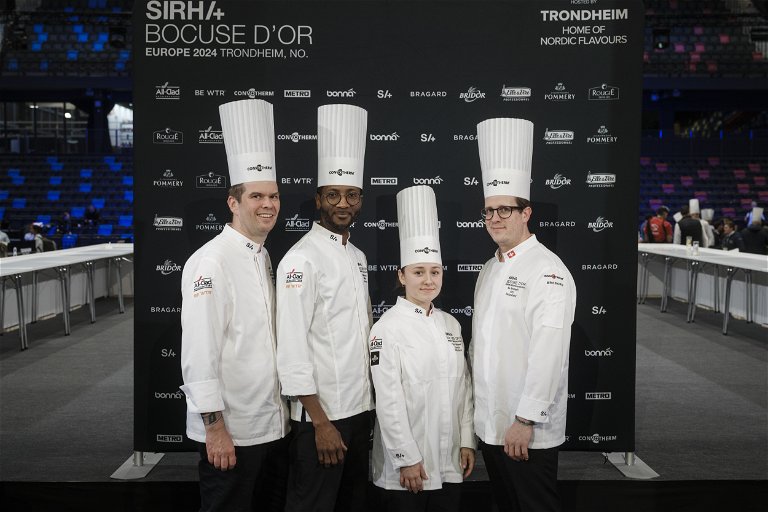
Top-class jury
But Switzerland was not able to completely convince the jury either. Euloge Malonga, deputy head of department at the Hirsladen Salemspital in Bern, entered the race with Commis Fiona Wittwer. They tried to convince the jury with a "marriage" between Norwegian reindeer and Metzgete, a traditional Swiss meat dish. Around 50 points separated them from making it to the world final in Lyon 2025.
Switzerland's team, however, couldn't fully persuade the jury either. Euloge Malonga, deputy head of the culinary department at Hirsladen Salemspital in Bern, competed with Commis Fiona Wittwer. They aimed to impress the jury by creatively combining Norwegian reindeer with Metzgete, a traditional Swiss meat specialty, in a unique culinary "marriage". Unfortunately, they fell short by approximately 50 points from securing a spot in the world final of the Bocuse d'Or 2025 in Lyon.
In January, just as it happened in Trondheim, the culinary elite will convene, this time in Lyon for the grand finale of the Bocuse d'Or 2025. The jury, comprising luminaries such as Viki Geunes from the three-star restaurant Zilte in Antwerp and Enrico Crippa from the three-star restaurant Piazza Duomo in Alba, Italy, underscores the event's prestige. Their expertise alone will determine the recipient of the coveted award, with judgments based on not just taste and presentation, but also technique, teamwork, interaction, and the cleanliness of the workspace.
Sensory stress
The challenge extends beyond just crafting flavors; candidates must consider all variables affecting taste, including their starting position in the competition and the heightened stress and sensory demands of the environment. As Schneider points out, the judges' palates are far from ordinary. "They are trained and used to such a high standard that the dishes have to be adapted accordingly."
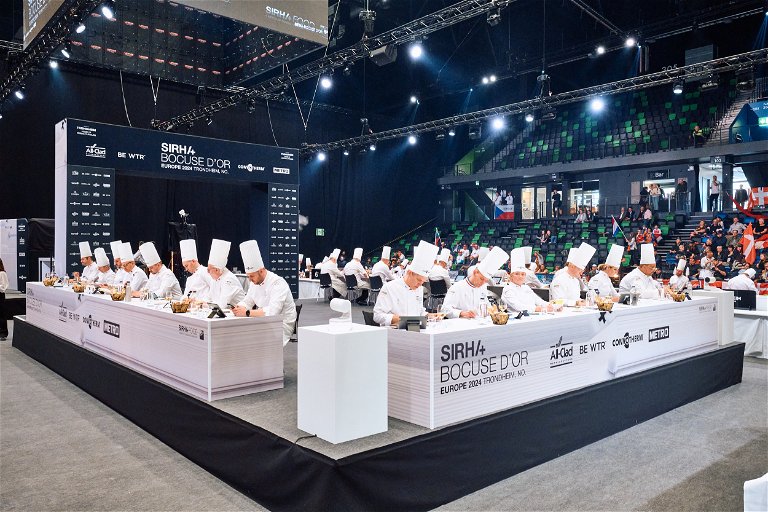
The other teams are well aware of the high standards. The level of competition is so intense that even seasoned professionals must guard against becoming desensitized to flavors. Matthew Peters, a kitchen jury member and the 2017 Bocuse d'Or winner, emphasizes that this competition truly pushes the boundaries of taste. He will represent the United States, hosting the next national preliminary round for the first time in mid-June. Twelve countries will vie for just five spots in the final in New Orleans, Louisiana: Argentina, Bolivia, Canada, Chile, Ecuador, Colombia, Guatemala, Mexico, the Dominican Republic, Uruguay, and Venezuela.
It's universally acknowledged as regrettable that the German team didn't advance to the final, despite giving their all. The possibility of a future attempt remains uncertain. Commis Hannes Hensel, just 20 years old, was particularly forthright in his post-defeat reflection: "As long as the understanding in Germany doesn't change, it's neither fun nor sensible."
Don't miss out!
Sign up now for our newsletter.

